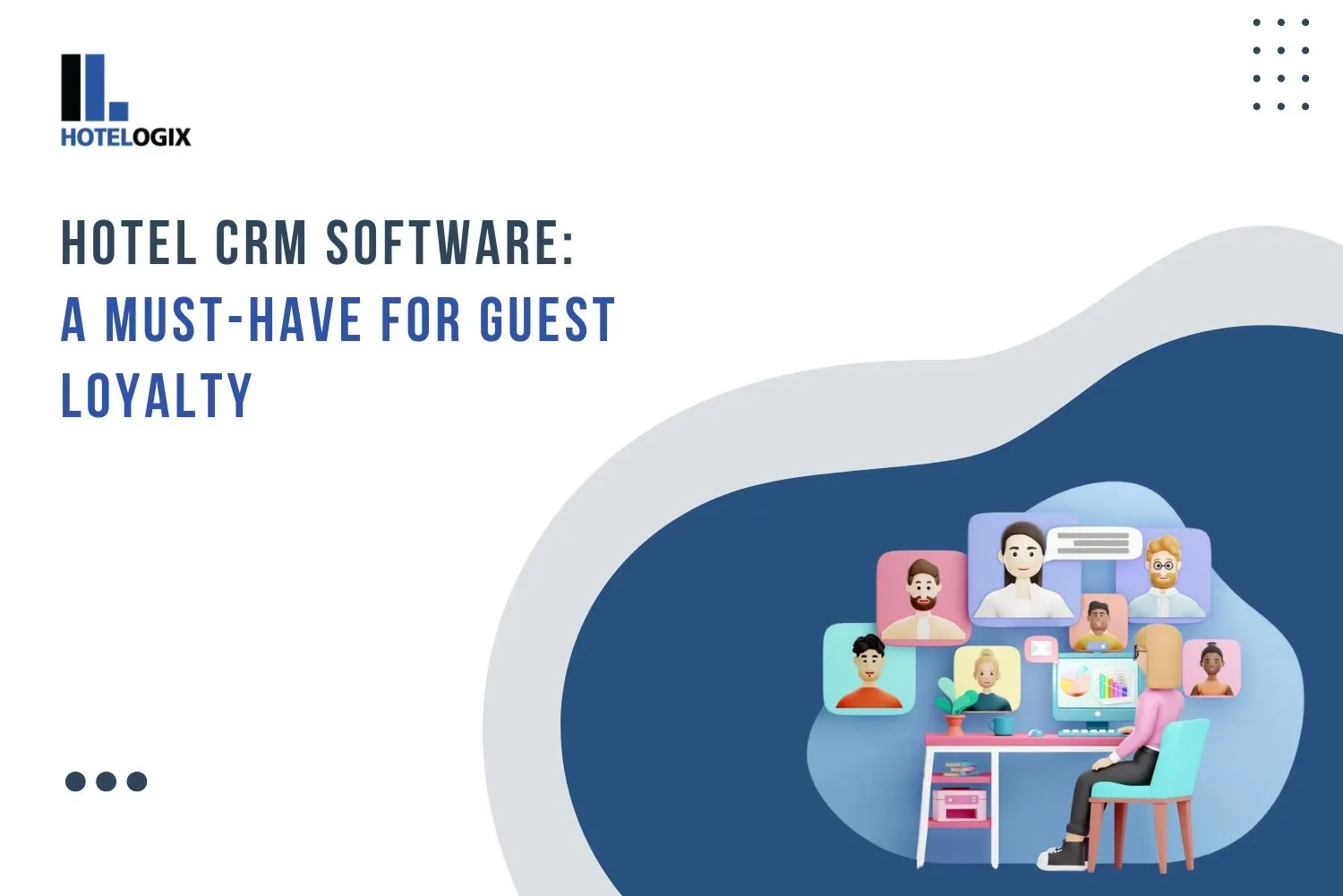Managing guest relationships can feel like a challenge. From understanding and remembering their preferences to handling their requests, a lot needs to go right for them to feel valued. Many hotels struggle with this. It’s not because they don’t care but because they lack the tools to stay organized.
What does CRM stand for in hotels? CRM stands for Customer Relationship Management. It’s a tool that organizes guest information, tracks communication, and helps you offer every guest a personal touch.
Challenges Hotels Face Without a CRM in the Hospitality Industry
Missed Personal Details
Guests like to feel valued. They expect hotels to understand their likes and dislikes. When hotels forget their room preferences, special requests, or even their favorite meals, it feels impersonal. This is where a CRM software for hotels can make a difference.
Delayed Communication
Guests don’t like waiting for responses. A missed email or a late message can make them feel unimportant. CRM strategies for hotels can streamline communication, ensuring guests receive timely updates.
Generic Marketing
Sending the same offers to every guest doesn’t work. People want promotions that feel relevant to them. A hotel CRM strategy helps tailor marketing to guest interests.
Losing Loyal Guests
Loyalty is built through small actions. When these actions are inconsistent, guests are less likely to return.
Read More - How to send automated guest emails
What is a Hotel CRM and How Does It Help?
A hotel CRM software is more than just a tool. It’s a system that helps you organize guest data, simplify communication, and improve guest experiences.
Benefits of CRM in the Hotel Industry
A CRM for hotels offers many advantages.
Personal Guest Profiles
Every guest has different needs. A CRM stores their preferences, past bookings, and feedback in one place. This helps you remember the little details that matter to them.
Example: A guest loves ocean-view rooms and prefers early check-ins. The CRM keeps this information ready for your staff to act on during their next visit. These personalized touches are examples of how a CRM makes guest management easier.
Clear Communication
A CRM in the hotel industry tracks every message sent to guests. From booking confirmations to thank-you notes, it makes sure nothing is missed.
Example: A guest books a room. They receive an instant confirmation email and a friendly follow-up message a day before arrival.
Targeted Marketing
Guests are more likely to book again when they receive offers that match their interests. A hotel CRM strategy ensures the right message reaches the right guest.
Example: A family who stayed at your resort gets an offer for a family package. They feel valued and are more likely to return.
Loyalty Tracking
Keeping track of repeat guests is easier with a CRM. It helps you reward them and build long-term relationships.
Example: A guest earns points for every stay. After earning enough, they get a free upgrade. This keeps them coming back.
What to Look for in the Best CRM Software for Hotels
Choosing the right CRM is important for hotels. It needs to work for your team and help you manage guest relationships better. Here are the key features to look for.
Easy to Use
The CRM should be simple. Your staff should understand it quickly without needing long training sessions. Complicated systems slow things down.
Works for Any Hotel Size
A good CRM should fit your property. Whether you run a small hotel or a chain, the system should adjust to your needs. It should handle growth without becoming a hassle.
Guest-Focused Tools
The CRM must store guest details like preferences, past bookings, and feedback. These tools make it easier to provide personal service and keep guests coming back.
Connects with Your Systems
The CRM should work smoothly with other tools you already use. Most importantly, it should seamlessly integrate with your existing Hotel PMS. When systems connect smoothly, your operations run better, and your guests have a better experience.
Sends Automatic Messages
Automatic emails, confirmations, and follow-ups save your team time. Guests receive timely information, making them feel cared for.
Gives Useful Reports
The system should offer clear and insightful reports about guest behavior and bookings. These insights help you improve guest services capabilities.
Flexible Setup
A customizable CRM lets you set it up the way you want. You can adjust templates or fields to match your hotel's style.
Keeps Data Secure
Protecting guest information is important. The CRM should have strong security features to avoid data leaks.
Mobile Friendly
A mobile-friendly CRM helps staff work from anywhere in the hotel. They can update guest records or check details while on the move.
Affordable and Valuable
The system should fit your budget. Look for one that gives value for the price without adding unnecessary costs.
Reliable Support
Choose a CRM with good customer support. Whether it’s fixing problems or training new staff, the support team should be available when needed.
Hotel CRM Examples: How Hotels Have Benefited
Hotels using CRM systems have seen real results.
- A small hotel in Goa used a CRM to track guest preferences. Repeat bookings increased by 20% in six months.
- A resort in Thailand sent pre-arrival messages with local tips, leading to higher guest reviews due to personalized communication.. A luxury property in the US used CRM data to create targeted promotions. Their revenue grew by 15% over the year.
These hotel CRM examples highlight how the right system can transform guest management efforts.
Final Thoughts
A hotel CRM software isn’t just about technology—it’s about making every guest feel valued. From organizing guest data to improving communication, a CRM simplifies operations and builds stronger relationships.
If managing guest relationships feels like a challenge, consider adopting a CRM. The benefits of CRM in the hotel industry are clear. Better organization, happier guests, and stronger loyalty are just the beginning.
Your guests deserve the best. A CRM helps you deliver exactly that.

